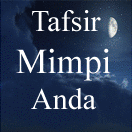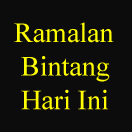Oceanic lithosphere is being destroyed by sinking back into
the mantle at the deep ocean trenches in a process called subduction.
As the oceanic slabs sink downward, they experience
higher temperatures that cause water and other volatiles to be
released, causing melts to be generated in the mantle wedge
overlying the subducting slab. These melts then move upward
to intrude the overlying plate, where the magma may become
contaminated by melting through and incorporating minerals
and elements from the overlying crust. Since subduction zones
are long narrow zones where large plates are being subducted
into the mantle, the melting produces a long line of volcanoes
above the down-going plate. These volcanoes form a volcanic
arc, either on a continent or over an oceanic plate, dependent
on which type of crust composes the overlying plate.
Island arcs are extremely important for understanding
the origin of the continental crust because the magmas and
sediments produced here have the same composition as the
average continental crust. A simple model for the origin of
the continental crust is that it represents a bunch of island
arcs which formed at different times and which collided during
plate collisions.
Since the plates are in constant motion, island arcs, continents,
and other terranes often collide with each other.
Mountain belts or orogens typically mark the places where
lithospheric plates have collided, and the zone that they collided
along is referred to as a suture. Suture zones are very
complex and include folded and faulted sequences of rocks
that form on the two colliding terranes and in any intervening
ocean basin. Often, slices of the old ocean floor are
caught in these collision zones (we call these ophiolites), and
the process by which they are emplaced over the continents is
called obduction (opposite of subduction).
In some cases, subduction brings two continental plates
together, which collide forming huge mountain belts like the
Himalaya Mountain chain. In continent-continent collisions,
deformation may be very diffuse and extend beyond the normal
limit of plate boundary deformation that characterizes
other types of plate interactions. For instance, the India-Asia
collision has formed the huge uplifted Tibetan Plateau, a
series of mountain ranges to the north including the Tien
Shan and Karakoram, and deformation of the continents
extends as far into Asia as Lake Baikal.

















Tidak ada komentar:
Posting Komentar
Catatan: Hanya anggota dari blog ini yang dapat mengirim komentar.